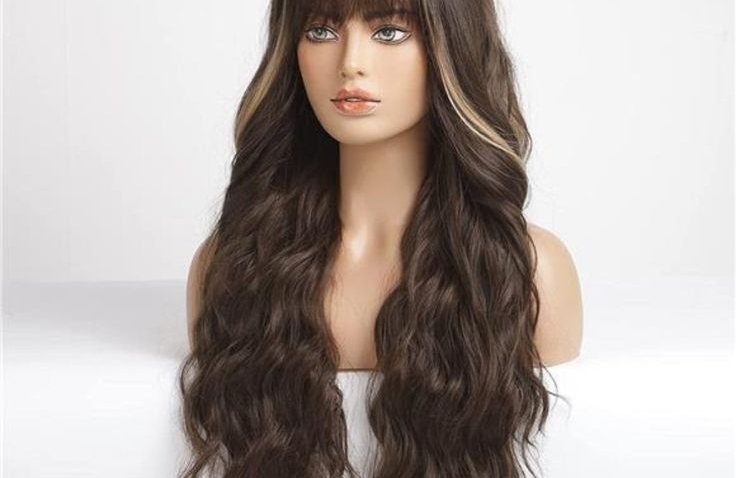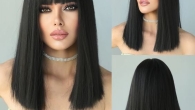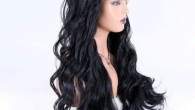
Are Wigs Bad for Your Hair? Unveiling the Truth About Hairpieces
Wigs have become a popular fashion statement and a helpful tool for managing hair loss. But with their growing popularity, a common question arises: are wigs bad for your hair?
This comprehensive guide dives into the world of wigs, addressing this concern and exploring the potential benefits and drawbacks of wig use for your natural hair. Whether you’re considering wigs for a change of pace or for medical reasons, this article will equip you with the knowledge to make an informed decision.
The Wigs vs. Hair Debate: Separating Myth From Fact
The idea that wigs damage hair is a common misconception. In reality, when worn correctly, wigs can actually protect your natural hair from various damaging factors. Here’s a breakdown of the truth behind the myth:
-
Myth: Wigs restrict airflow and cause hair loss.
-
Fact: Modern wigs are made from breathable materials and ventilated caps that allow proper scalp air circulation. This prevents irritation and sweating, which can contribute to hair loss.
-
Myth: Wigs cause friction and breakage.
-
Fact: When wig fit properly and are secured well, they minimize friction against your natural hair. Additionally, protective styles like braids or cornrows underneath the wig can further reduce friction.
-
Myth: Wigs trap heat and damage hair.
-
Fact: Similar to breathability, advanced wig construction allows for heat to escape, preventing damage to your natural hair.
When Wigs Can Benefit Your Hair Health
While not inherently bad for your hair, wigs can offer surprising benefits for overall hair health:
-
Protection from Styling Damage: Frequent heat styling, chemical treatments, and tight hairstyles can take a toll on your hair. Wigs allow you to experiment with different looks without subjecting your natural hair to these damaging practices.
-
Reduced Manipulation: Constantly braiding, twisting, or manipulating your hair can lead to breakage. Wigs provide a protective layer, allowing your hair to rest and recover from manipulation.
-
Scalp Sensitivity Relief: For individuals with sensitive scalps who experience discomfort from certain styling products or tight hairstyles, wig can offer a welcome relief.
-
Hair Growth Encouragement: By shielding your hair from damage and promoting a healthy scalp environment, wig can indirectly contribute to a healthy hair growth cycle.
Potential Downsides of Wigs: Ensuring Healthy Hair Practices
While wigs generally aren’t detrimental to your hair, there are some potential downsides to consider:
-
Improper Wig Fit: A tight or ill-fitting wig can cause pulling on your hair, leading to traction alopecia, a form of hair loss.
-
Poor Wig Hygiene: Unwashed wig can harbor bacteria and build-up, potentially causing scalp irritation and affecting hair growth.
-
Neglecting Your Natural Hair: While wig offer protection, neglecting your natural hair underneath the wig can lead to dryness and breakage.
To reap the benefits of wigs and maintain healthy hair, here are some essential tips for wig wearers.
Wigs and Healthy Hair: Essential Tips for Wig Wearers
By following these tips, you can ensure your wig use promotes, rather than hinders, healthy hair:
-
Invest in a Well-Fitting Wig: A properly sized and fitted wig minimizes pulling and ensures a comfortable wear.
-
Prioritize Wig Maintenance: Regularly wash and care for your wig according to the type of material to maintain its hygiene and prevent scalp irritation.
-
Maintain Your Natural Hair Routine: Don’t neglect your natural hair underneath the wig. Wash and condition it regularly, and opt for protective styles like braids or cornrows when wearing the wig.
-
Allow Your Hair to Breathe: Don’t wear your wig 24/7. Give your scalp and hair some time to breathe between wearing sessions.
-
Focus on Scalp Health: Maintain a healthy scalp environment by using gentle shampoos and conditioners. A healthy scalp promotes healthy hair growth.
Making Wigs Work for You: Choosing the Right Wig for Hair Health
The type of wig you choose can also impact your hair health. Here’s a breakdown of some factors to consider:
-
Material: Synthetic wig are generally more affordable but less breathable than human hair wigs. If scalp sensitivity is a concern, prioritize breathable human hair wig.
-
Construction: Opt for wigs with ventilated caps that allow for airflow and prevent heat build-up.
-
Fit: A snug but comfortable fit is crucial. A tight wig can cause pulling and traction alopecia, while a loose wig can cause friction.
Consulting a Hair Professional: Addressing Specific Hair Concerns
While this guide provides a general overview of wig and hair health, it’s important to remember that everyone’s hair is unique. If you have specific concerns about hair loss, scalp conditions, or integrating wigs into your hair care routine, consulting a hair professional is highly recommended.
Here are some situations where seeking professional advice is beneficial:
-
Hair Loss: If you’re experiencing hair loss due to medical conditions or treatments, a hairstylist specializing in hair loss can recommend wig options that complement your remaining hair and advise on proper wig care to minimize further hair loss.
-
Scalp Conditions: Individuals with sensitive scalps or pre-existing scalp conditions like eczema or psoriasis should consult a dermatologist or trichologist (a scalp specialist) before wearing wigs. They can recommend wig materials and hair care practices that minimize irritation.
-
Integrating Wig with Natural Hair: If you plan to wear wig while also maintaining your natural hair, a hairstylist can recommend protective styles for your natural hair underneath the wig and advise on a personalized hair care routine to ensure the health of both your wig and your natural hair.
The Final Verdict: Wigs and Hair Health – A Balanced Approach
Wigs can be a fantastic addition to your hair care routine, offering versatility, style, and even protection for your natural hair. When worn and cared for properly, wig do not damage your hair.
However, improper wig use and neglecting your natural hair underneath the wig can lead to some downsides.
The key takeaway? Maintain a balanced approach. Choose well-fitting, breathable wig, prioritize wig hygiene, and continue to care for your natural hair. By following these tips, you can enjoy the many benefits of wigs while promoting healthy hair growth.
Embrace Wigs with Confidence!
Now that you’re armed with the knowledge of wig and their impact on hair health, you can confidently explore the exciting world of wig! Whether you’re seeking a dramatic transformation or a subtle change, wigs offer endless possibilities for self-expression.
Don’t wait any longer! Browse our vast selection of high-quality wigs, including breathable human hair options and comfortable synthetic styles. We offer expert advice to help you find the perfect wig that complements your hair health needs and personal style.
Ready to unlock a world of style and hair protection? Visit our website today and discover your dream wig!












Leave a Reply